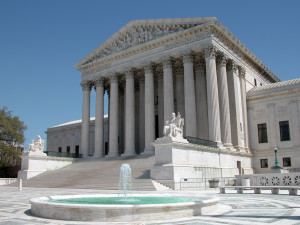Litigation relates to a process in which parties (litigants: plaintiffs and defendants) resolve their disputes through the court proceedings. Plaintiff is the party who initiates the lawsuit by filing a complaint in court. Defendant is a party who is being sued by the plaintiff. Litigation can be an expensive and lengthy experience that can take up to a year to complete in the court system in California. Many California superior courts have a program (fast-track) that requires all lawsuits (with certain exceptions) to be consummated within a year period. Courts are generally quite firm with this mandate unless good cause can be demonstrated otherwise.
Although there are many cases in our court system, most of the cases are settled without advancing to the trials. The policy of the courts is to encourage settlements between the parties. However, there is always a small percentage of the cases that will be resolved in a trial.
As indicated, plaintiff is the person or entity that commences the lawsuit. After the filing of the complaint, plaintiff must serve the complaint and summons (a document noticing the defendant of the filed action). Upon service of the process (complaint and summons and all other related documentation), a defendant has a specified time (generally 30 days in California) to file an answer to the complaint. If no action is taken by a defendant properly served, default and subsequent default judgment may be entered against that defendant. A default judgment is a valid judgment enforceable by the plaintiff. Thus, a defendant should never ignore the lawsuit.
After the defendant answers the complaint, a process called discovery (where both sides gather evidence in support of their claims made) will generally begin. Discovery is essential in terms of securing the evidence necessary to prove plaintiff’s case and the defendant’s defenses. Mediation will be ordered normally by the courts, giving an opportunity to the parties to resolve the differences. If the conflict cannot be eliminated or settled in the mediation, the parties will then go to trial and allow either the court or the jury to reach a decision.
This office has extensive experience and learned knowledge in litigation and will undertake efficient and effective tactics to obtain the fair and just results for the clients. We will always eagerly and zealously advocate the causes and protect the rights of our clients with fairness and justice in mind.

